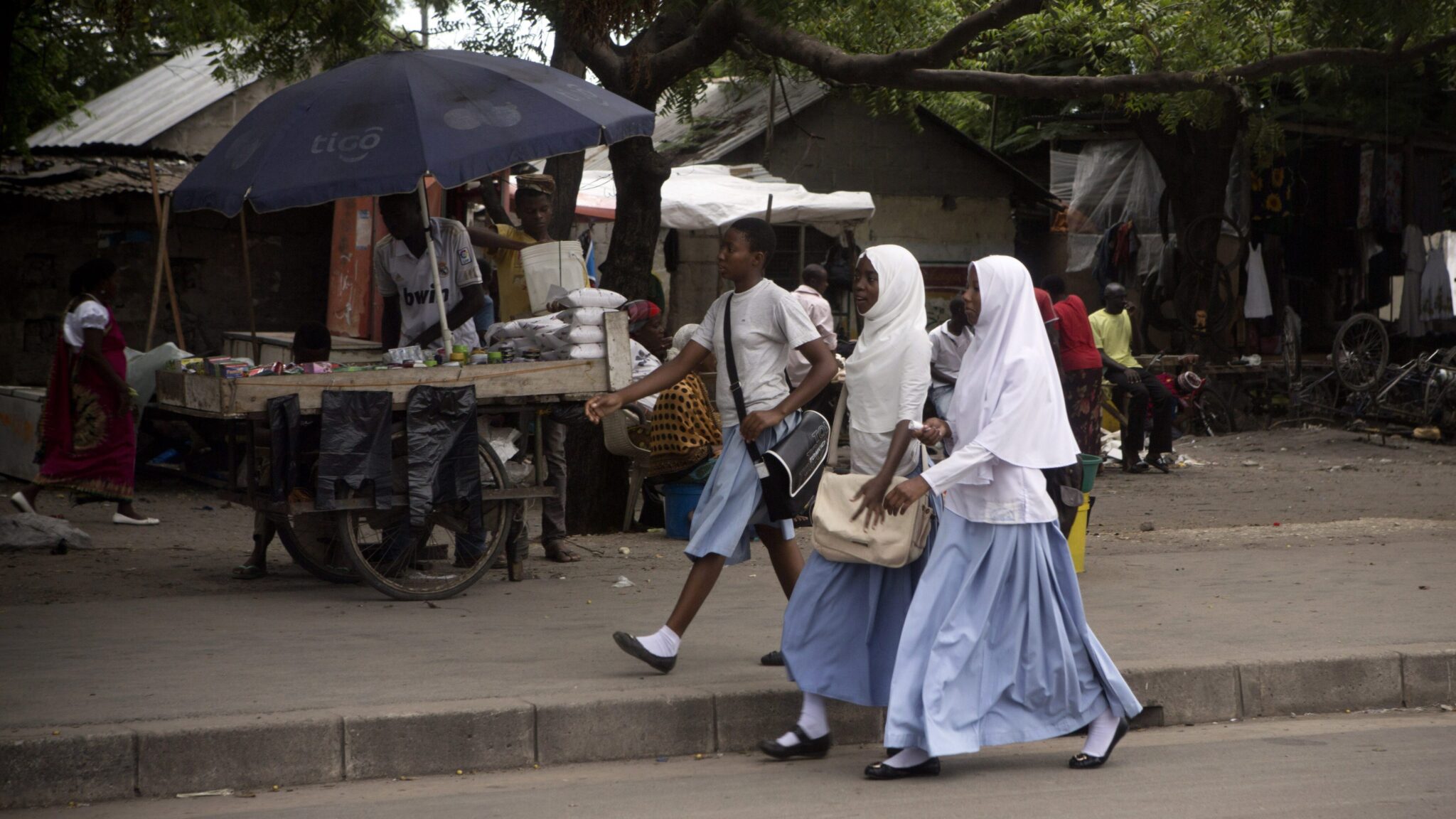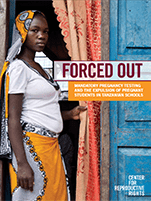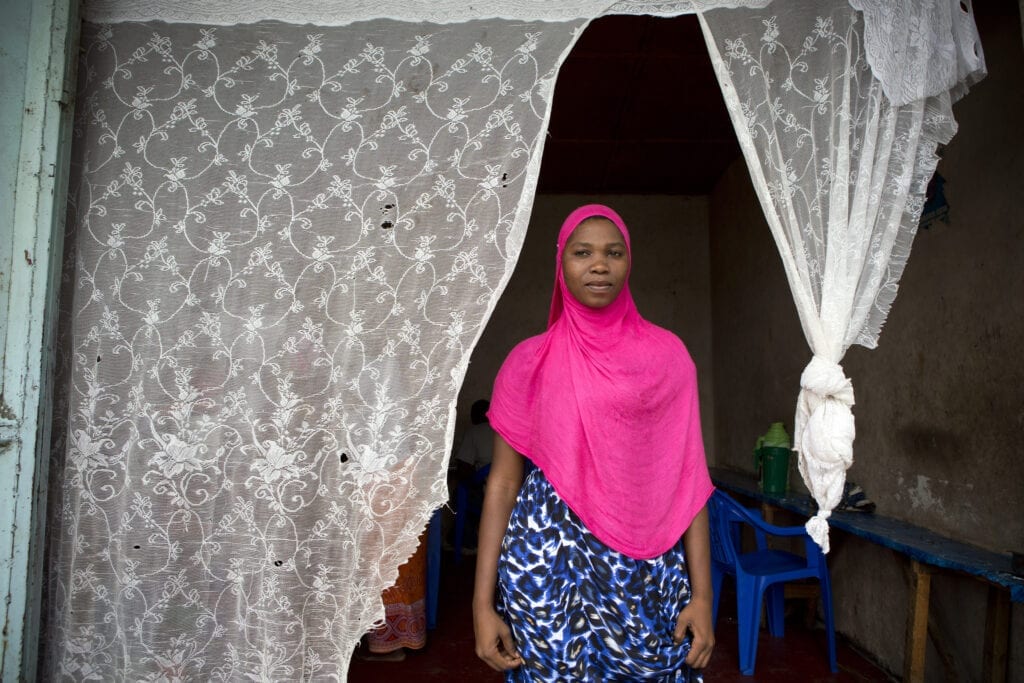African Committee Recommends Tanzania Reform Policies That Barred Pregnant Girls from School
Ruling by ACERWC in case brought by the Center and its partner marks a victory for adolescent girls in Tanzania and beyond.

For years, the Tanzanian government has forced girls in public schools to undergo mandatory pregnancy testing and expelled them permanently if they were pregnant — denying thousands of girls the opportunity to continue their formal education.
On September 15, the African Committee of Experts on the Rights and Welfare of the Child (ACERWC) ruled that the practice of expelling pregnant students from school violated adolescent girls’ human rights and recommended that Tanzania reform its education policies.
The case, Legal and Human Rights Centre and Center for Reproductive Rights v United Republic of Tanzania, was brought by the Center for Reproductive Rights and the Legal and Human Rights Centre of Tanzania (LHRC) in June 2019 on behalf of six adolescent girls who were expelled from school for being pregnant, as well as all girls in Tanzania.
About the ACERWC
African Committee of Experts on the Rights and Welfare of the Child (ACERWC)
The ACERWC works to advance children’s rights by monitoring the implementation of the African Children’s Charter, which sets out rights and defines principles for the status of children.
Argued before the ACERWC in November 2021, the case sought to end the regressive and discriminatory policies that prevented girls—particularly those living in poverty— from completing their educations and pursuing their professional and personal goals.
The ACERWC found that the United Republic of Tanzania violated its obligations as a state party to the African Charter on the Rights and Welfare of the Child—in particular, its obligations relating to non-discrimination; best interests of the child; protection of privacy, education, health and health services; protection against child abuse and torture; and protection against harmful social and cultural practices.
“Today’s victory is for adolescent girls in Tanzania who have perennially endured an oppressive and discriminatory education system for being pregnant or married,” said Martin Onyango, the Center’s Associate Director, Legal Strategies for Africa. “It is also a victory for millions of adolescent girls across the continent since 53 countries have ratified the African Charter on the Rights and Welfare of the Child. The decision by the Committee largely contributes to ensuring stronger legal guarantees for sexual reproductive health and rights for adolescents in Africa,” added Onyango.
Among the government’s human rights and gender violations cited were mandatory pregnancy testing, expelling pregnant adolescent girls from school, illegally detaining pregnant adolescent girls, completely banning adolescent girls from education post-childbirth, and failing to enable adolescent girls’ access to sexual and reproductive health (SRH) services and information.
The ACERWC recommended that the United Republic of Tanzania:
- Immediately prohibit mandatory pregnancy testing in schools, health facilities and publicly announce the prohibition.
- Undertake concrete steps to prevent expulsion of pregnant, married girls from schools by providing applicable laws and policies.
- Investigate cases of detention of pregnant girls and immediately release detained pregnant girls under interrogation on who impregnated them.
- Immediately stop the arbitrary and illegal arrests of pregnant schoolgirls.
- Immediately re-admit schoolgirls who have been expelled due to pregnancy and wedlock.
- Provide special support programmes to compensate for lost years and ensure better learning outcomes for the returned girls.
- Provide adolescent sexuality education and friendly sexual reproductive health (SRH) services.
Read the report about Tanzania’s policies.
Forced Out: Mandatory Pregnancy Testing and the Expulsion of Pregnant Students in Tanzanian Schools
This 2013 report documented how school officials in Tanzania subjected pregnant girls to mandatory expulsions and established how forced pregnancy testing is a serious infringement of girls’ rights to privacy and autonomy.
The ACERWC also recommended for Tanzania to undertake proactive measures toward eliminating child marriage and other harmful practices affecting girls, which would include addressing gender-based discrimination, poverty, and negative customary and societal norms. Further, theCommittee directed Tanzania to provide survivors of sexual violence including child marriage with conducive reporting mechanisms, psychosocial support, rehabilitation, and reintegration services.
Tanzania is expected to report back to the ACERWC on measures to implement the ruling 180 days from the decision date.
Tanzania’s Policy Forces Thousands of Girls to End Their Formal Educations
According to Tanzania’s Ministry of Education and Vocational Training, in 2012 alone, 2,433 girls dropped out of primary school and 4,705 dropped out of secondary school due to pregnancy. Tanzania also has one of the highest rates of child marriage in the world — 37% of girls marry before the age of 18.
After the Center and LHRC presented its case before the ACERWC in November, Tanzania’s Minister of Education announced that the country would end its discriminatory policy. The Center and LHRC continued to pursue the case to ensure the policy would be permanently lifted and codified within Tanzanian law.
Read more:
- ACERWC Ruling in Legal and Human Rights Centre and Centrer for Reproductive Rights v United Republic of Tanzania, 09.15.22
- Center and its Partner Argue Against Tanzania’s Expulsion of Pregnant Girls from School, 11.24.21


